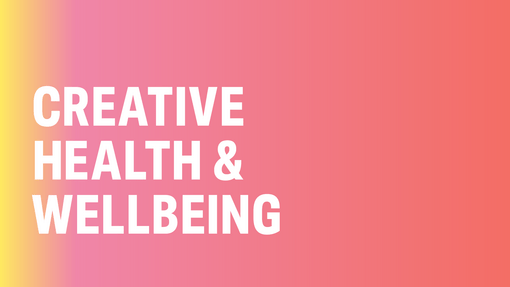Art, health and criminal justice – the evidence stacks up
Posted by:

Over the past five years, appreciation of how arts and culture can support the health and wellbeing of individuals and communities has grown rapidly. The same is true for understanding the contribution that they can make in the criminal justice sector too – offering positive alternatives for young people before potential offending behaviours escalate; and aiding the rehabilitation of offenders and ex-offenders.
It’s a very exciting time for work in both fields, and each has also received the backing of Ministers in recent weeks. Firstly, from Secretary of State for Health and Social Care, the Rt Hon Matt Hancock MP, whose speech to the King’s Fund focused on the role of the arts in preventing and managing physical and mental illness. It also previewed a number of new policies that the Arts Council will help to explore and deliver, including the role of libraries in public health, and the creation of a National Academy for social prescribing.
Just last week, the Secretaries of State for Justice (the Rt Hon David Gauke MP) and Digital, Culture, Media and Sport (the Rt Hon Jeremy Wright QC MP) co-hosted a round table, organised by the National Criminal Justice Arts Alliance (NCJAA) with senior industry figures to discuss how the cultural and creative industries can support the employment of offenders and ex-offenders. Some very positive developments have come from this, too; please watch this space for further details!
As part of the current consultation process to develop our next ten-year strategy, we’ve been assessing and collating the evidence base for a range of different areas of practice – including children and young people, leadership and innovation – in order to inform both our own thinking, and the responses of organisations and practitioners across the country.
Today, we add to this knowledge base by publishing “Arts and culture in health and wellbeing and in the criminal justice system: a summary of evidence”, which offers a snapshot of key findings through relevant research in both fields. Nearly 200 academic papers and other sources are directly cited (almost all published over the past five years), with many, many more pieces of evidence having been digested during the process.
What does the evidence say?
For health and wellbeing, some of the themes identified include the positive impact of the arts upon mental health, not least depression and anxiety; the value of multiple artforms in treating dementia and other key challenges in healthy ageing; improvements in social wellbeing, including reduced loneliness and isolation; and an emerging understanding of the value of ‘arts on prescription’, particularly for outcomes such as increases in individuals’ confidence and self-efficacy.
There remains a shortage of current evidence exploring the cultural impact of such work – including judgements of artistic quality, the impact on the creativity of participants, and the ‘mechanisms’ that make projects successful – and this could be important to consider when research is commissioned in the future.
For criminal justice, the research highlights the strong contribution of the arts as offenders seek to develop a new, more positive identity, as well as upon their sense of self-efficacy and agency in the world. The evidence is also clear for the role of the arts in tackling depression and anxiety.
Arts projects can have a positive impact on how people manage themselves during their sentence, particularly on their ability to cooperate with others
- Arts and culture in health and wellbeing and in the criminal justice system, page 14
Crucially, the research also explores how participation in the arts and culture can presage or strengthen wider engagement in learning, employment and other positive activities; and the contribution to desistance (the cessation of behaviours that could feed into future offending, and the corresponding development of positive behaviours). It also looks at the potential to address that key criminal justice outcome – a reduced likelihood of criminal reoffending. This is a highly complex matter however, where current findings remain in their relative infancy, and must be further built upon.
We hope that you will find this evidence summary useful – please do read, share, and let us know what you think, using #AnACEFuture.
We also strongly welcome responses to the ten-year strategy consultation, from the perspective of arts, health and wellbeing, and arts in criminal justice, as well as practice linked to wider social outcomes (eg loneliness, homelessness, healthy ageing). Towards this, some prompts have been collated by two of our new Sector Support Organisations – the Culture Health and Wellbeing Alliance and the National Criminal Justice Arts Alliance.













